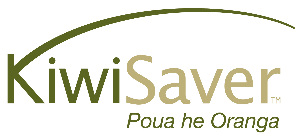by Daniel Smith

It may well be the biggest shake up in the history of KiwiSaver.
As the KiwiSaver default fund providers which were appointed by the Minister of Commerce and Consumer Affairs expire on June 30, 2021, current default funds have had to re-apply to keep their status.
The secret of who is in and who is out is being closely guarded by MBIE. Even the number of default funds positions available has not yet been stated.
Regarding the number of available default funds, an MBIE spokesperson told Good Returns, “The number of KiwiSaver default providers that will be appointed will be determined following the outcome of the procurement process and the subsequent decision by ministers on the appointments.
“As set out in the RFP documentation, there is a preference to appoint a minimum of five default providers, with a higher number appointed only if doing so will not reduce value for money.”
The nine current providers are AMP, ANZ, ASB, BNZ, BT Funds (Westpac), Fisher Funds, Booster, Kiwi Wealth (Kiwibank) and Mercer.
AMP has confirmed that it has reapplied for default status with Blair Vernon, chief executive of AMP Wealth Management telling Good Returns that, “As a default KiwiSaver provider since 2007, we have the experience, track record, capabilities, and client-focus to continue to serve as a default KiwiSaver provider.”
ANZ has also confirmed that it reapplied, alongside Kiwi Wealth, Westpac and Mercer.
Fisher Funds has also applied, with a representative telling Good Returns that “KiwiSaver is a core part of the Fisher Funds business and with a passion for getting great outcomes for our clients, default status is an important part of that picture.”
Booster also confirmed their application, telling Good Returns that it is “hopeful we will get the opportunity to keep helping Kiwi’s during the next KiwiSaver default term”.
There are two notable exceptions from the previous nine default members. Both ASB and BNZ refused to comment on whether they have reapplied to retain their default status.
Whether they have applied or not will be revealed once the minister makes a decision on which funds will carry on with default status.
It is unclear whether new providers will seek default status. One rumoured to be bidding for a place on the list is Sam Stubbs' Simplicity which currently has more than $2.6 billion across all its funds.
Stubbs gave a firm "no comment" when approached by Good Returns.
Those funds that achieve default status this year will have a lot more responsibility than in previous years. The Government has proposed a mandate for default schemes.
The new default funds will have to:
If a previous default provider is not reappointed, they will be required to reassign their non-active default members among the appointed providers (on a sequential basis in accordance with the KiwiSaver Act 2006).
| « MJW KiwiSaver survey reveals balanced and growth fund overlaps | IRD to fork out $6.6 million for KiwiSaver pay delay » |
Special Offers
Sign In to add your comment

© Copyright 1997-2026 Tarawera Publishing Ltd. All Rights Reserved